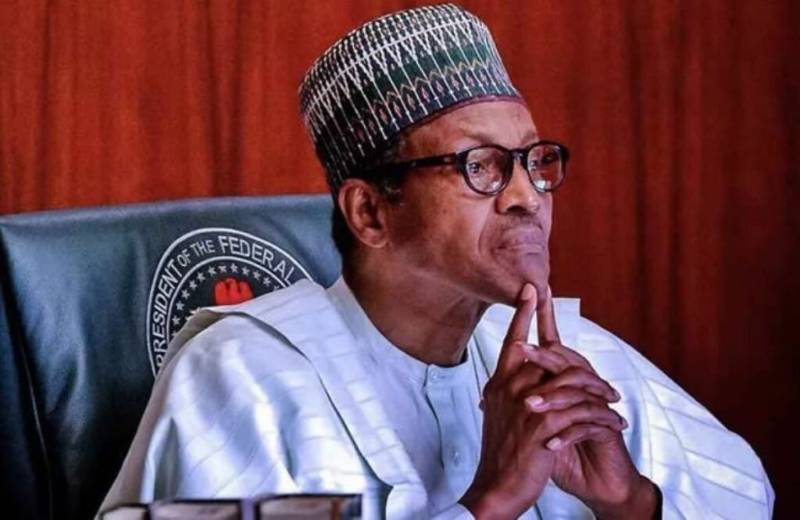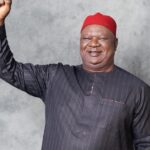By Desmond Uchechukwu Onu
The development of any nation is dependent largely on her political stability. Achieving political stability is a function of a committed political will of the nation’s patriots and political stakeholders. This is the ideal that was aptly captured in the first line of the first stanza of our national anthem, thus: ‘Arise, O compatriots, Nigeria’s call obey’.
Nigeria, the most populous black nation in the world, is a pluralistic state of over 400 ethnic groups and 450 languages. The ethno-linguistic and cultural diversity of Nigeria can be described as a figurative antithesis that could either be harnessed positively for national political stability and economic prosperity or be exploited in the negative direction for ethnic jingoism and service of some personal ambitions that can only be ephemeral. For Nigeria as a nation-state to walk on the path of irreversible progress, there is need for us to arise as compatriots in obedience to the spirit of fairness and unity as our national ideals. This will be achieved by focusing on the former aspects of our national antithesis which will usher in our national ideals upon which the rivers of accommodation, tolerance, patience and national cohesiveness will freely flow. In the golden thought of the members of the constitutional conference of 1995, the nation was divided into six sub-national constellations known today as six geopolitical zones- namely North-East, North-West, North-Central, South-East, South-West and South-South geopolitical zones. The creation and existence of these zones (though not recognized in the 1999 constitution as amended, they exist as an unwritten aspect of our national political norms and practices) have been well-entrenched in our national conscience vis-à-vis the distribution of the national economic and political positions/assignments. This is because the states and ethnic groups that constitute each of these zones are not only geographically proximate but also share ethnic similarities and common political history. Exploiting the negative aspects of our national antithesis in form of ethnic jingoism seems to be more glaring in our present national political firmament given the manner in which the South-East geopolitical zone has been treated in the affairs of the Nigerian state. In the short-run, the proponents of the negative aspects of our national anthithesis may think it is in the best interest of their geopolitical or ethnic constellation(s). But unfortunately, it is like the proverbial instance of harming the leg, as a part of the body, hoping that the other unharmed part of the body will be asleep when the leg is painfully bleeding. We need not to be reminded that ethnic jingoism and subjugation are behind the wastages of life and properties in form of insecurity and poor per capita income that is ravaging our dear nation, Nigeria today. This is at the expense of increased national quality of life and wellbeing that would have been the result should we had pursued the positive dimension of our national antithesis. Aside the first six years of our independence (1960 -1966) during which the ship of the Nigerian state was ably steered by Late Sir Alhaji Abubakar Tafawa Belewa from the North-East (Bauchi State), the Second Republic led by the first democratically elected president of Nigeria, Late Usman Aliyu Shehu Shagari from the North-West (Sokoto State) and the three months of the Interim National Government led by Late Chief Ernest Adegunle Oladeinde Shonekan from the South-West (Ogun State), the 33 years of military rule were also led by the young military officers from the North-West, North-Central and South-West extractions (except for 6 months [January to July, 1966] of J. T. U. Aguiyi Ironsi’s stint). For instance, General Yakubu Gowon from the North-Central (Plateau State) was the Head of State for 9 years (1966-1975). General Murtala Muhammed from the North-West (Kano State) led Nigeria between 1975 and 1976 (seven months). Major-General Muhammadu Buhari from the North-West (Katsina State) was the military Head of State between 1984 and 1985 (1 year and 8 months). Between 1985 and 1993 (8 years), General Ibrahim Badamosi Babangida from the North-Central (Niger State) steered the ship of the nation both as military Head of State and also as a military president, his exclusive appellation. The baton went back to the North-West (Kano) as Late General Sani Abacha became the head of state for six years. At the demise of Abacha, General Abdulsalami Abubakar from the North-Central (Niger State) was head of the military government for 1 year (1998-1999) and successfully handed over to civil rule which has remained till the present date. Many political pundits will be quick to describe the 33 years of military juntas as a ‘period of misrule’. This phrase (to them) seems to suggest that there was no leadership steered by people from other geopolitical zones in subjugation of a particular zone, the South-East. Since the return of civil rule in 1999 till date, it is worthy of note that Nigerian people of the South-East extraction are yet to be considered worthy of steering the ship of the Nigerian state as President and Commander-in-Chief of the Armed Forces. This is even when four out of the six geopolitical zones (South-West, South-South, North-West, North-East) have again taken another round of turns in the highly coveted seat of the Nigerian presidency either as President or Vice President. The questions now begging for answers are: Are the South Eastern people part of Nigeria in the real sense of it? Are we still in the civil war? If we are not, did the war actually end on the note of ‘no victor, no vanquished’? Are there people that are truly set out to be victimized as ‘second class citizens of Nigeria’? Beyond the inscription of “Unity and Faith, Peace and Progress” on Nigeria’s Coat of Arm, why have we disregarded the path of unity and faith in our Nigerianness as the integral pathways for the achievement of enduring peace and national progress? Do equity and fairness still constitute part of our national ideals? These should burden our conscience as patriots of the nation as we approach on the 2023 general election. Let us bear in mind that nationhood is more durable than a political season but a political season is essential for the survival of the nationhood.
*Uchechukwu Onu, PhD, is a political commentator and public affairs analyst of the University of Nigeria, Nsukka.
Joe Abuchi
The AUTHORITY NEWSPAPERS is published BY AUTHORITY MEDIA & PUBLICATIONS LIMITED with headquarters in Abuja - FCT.
Our vision is to be the best newspaper in Nigeria and one of the best in Africa; operating as a viable business and serving the best interests of the citizens as the watchdog of the nation and defender of Nigeria's nascent DEMOCRACY.
Founded 1st August 2015


